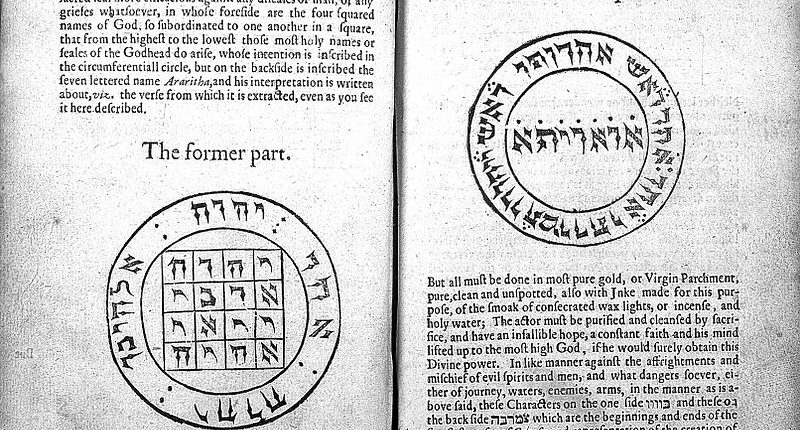Definition of occult
Occult Definition
adjective
1: not revealed: SECRET
2: not easily apprehended or understood:
Buy this book at Amazon
The occult (from the Latin word occultus “clandestine, hidden, secret”) is “knowledge of the hidden”.
In common usage, occult refers to “knowledge of the paranormal”, as opposed to “knowledge of the measurable”.
The term is sometimes taken to mean knowledge that “is meant only for certain people” or that “must be kept hidden”. Theosophist Helena Blavatsky sed that is simply the study of a deeper spiritual reality that extends beyond simple reason and the physical sciences.
The occult, in the most general sense, is a category of supernatural views and methods. They generally fall outside the range of religion and science, including such events as mysterious agency as mysticism, spirituality, and magic. It can also attribute to supernatural ideas like extra-sensory perception and parapsychology.
The term occult sciences were used in the 16th century.
It was mainly used to describe astrology, alchemy, and natural magic. Today is seen as pseudosciences. The term occultism began in 19th-century France. It came to be connected with various French esoteric groups connected to Éliphas Lévi and Gérard Encausse. In 1875 was introduced into the English language by the esotericist Helena Blavatsky.
During the 20th century, the term occult was used by a range of different writers. By the 21st century was commonly used– including by academic scholars of esotericism – to refer to a range of esoteric currents that emerged in the mid-19th century and their descendants. Occultism is therefore often used to categorise such esoteric traditions. Traditions like Spiritualism, Theosophy, Anthroposophy, the Hermetic Order of the Golden Dawn, and New Age.
The use of the term as a nominalized adjective has increased especially since the late twentieth century. In that same period, occult and culture were combined to form the neologism occulture by Genesis P-Orridge.



